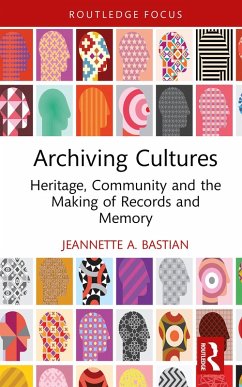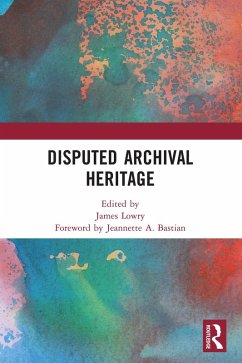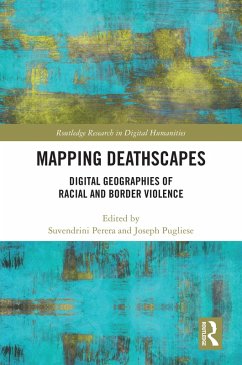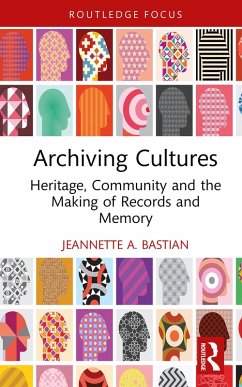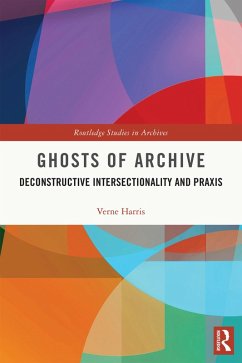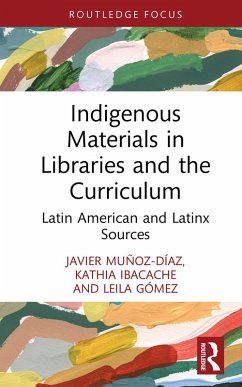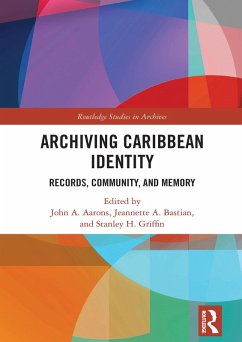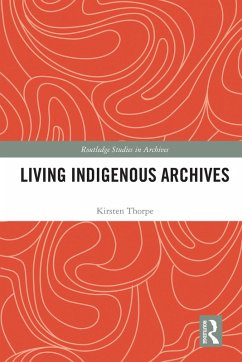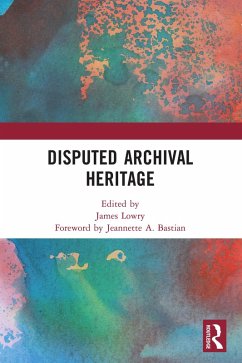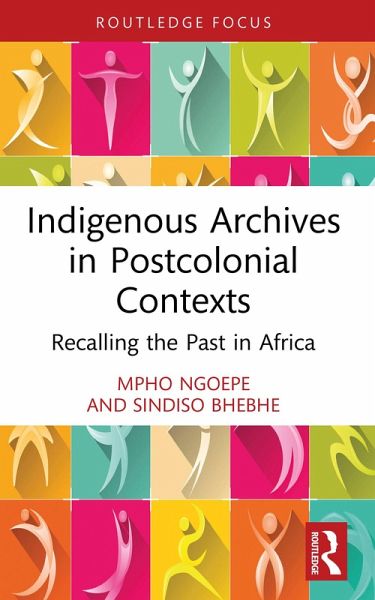
Indigenous Archives in Postcolonial Contexts (eBook, PDF)
Recalling the Past in Africa
Versandkostenfrei!
Sofort per Download lieferbar
21,95 €
inkl. MwSt.
Weitere Ausgaben:

PAYBACK Punkte
11 °P sammeln!
Indigenous Archives in Postcolonial Contexts revisits the definition of a record and extends it to include memory, murals, rock art paintings and other objects.Drawing on five years of research and examples from Zimbabwe, Botswana and South Africa, the authors analyse archives in the African context. Considering issues such as authentication, ownership and copyright, the book considers how murals and their like can be used as extended or counter archives. Arguing that extended archives can reach people in a way that traditional archives cannot and that such archives can be used to bridge the g...
Indigenous Archives in Postcolonial Contexts revisits the definition of a record and extends it to include memory, murals, rock art paintings and other objects.
Drawing on five years of research and examples from Zimbabwe, Botswana and South Africa, the authors analyse archives in the African context. Considering issues such as authentication, ownership and copyright, the book considers how murals and their like can be used as extended or counter archives. Arguing that extended archives can reach people in a way that traditional archives cannot and that such archives can be used to bridge the gaps identified within archival repositories, the authors also examine how such archives are managed and authenticated using traditional archival principles. Presenting case studies from organisations such as Gay and Lesbian Memory in Action Archives (GALA) and heritage projects such as the Makgabeng Open Cultural Museum, the authors also analyse Indigenous family praises and songs and explore how such records are preserved and transmitted to the next generation.
Indigenous Archives in Postcolonial Contexts demonstrates how the voices of the marginalised can be incorporated into archives. Making an important contribution to the effort to decolonise African archives, the book will be essential reading for academics and students working in archival studies, library and information science, Indigenous studies, African studies, cultural heritage, history and anthropology.
Drawing on five years of research and examples from Zimbabwe, Botswana and South Africa, the authors analyse archives in the African context. Considering issues such as authentication, ownership and copyright, the book considers how murals and their like can be used as extended or counter archives. Arguing that extended archives can reach people in a way that traditional archives cannot and that such archives can be used to bridge the gaps identified within archival repositories, the authors also examine how such archives are managed and authenticated using traditional archival principles. Presenting case studies from organisations such as Gay and Lesbian Memory in Action Archives (GALA) and heritage projects such as the Makgabeng Open Cultural Museum, the authors also analyse Indigenous family praises and songs and explore how such records are preserved and transmitted to the next generation.
Indigenous Archives in Postcolonial Contexts demonstrates how the voices of the marginalised can be incorporated into archives. Making an important contribution to the effort to decolonise African archives, the book will be essential reading for academics and students working in archival studies, library and information science, Indigenous studies, African studies, cultural heritage, history and anthropology.
Dieser Download kann aus rechtlichen Gründen nur mit Rechnungsadresse in A, B, BG, CY, CZ, D, DK, EW, E, FIN, F, GR, HR, H, IRL, I, LT, L, LR, M, NL, PL, P, R, S, SLO, SK ausgeliefert werden.





